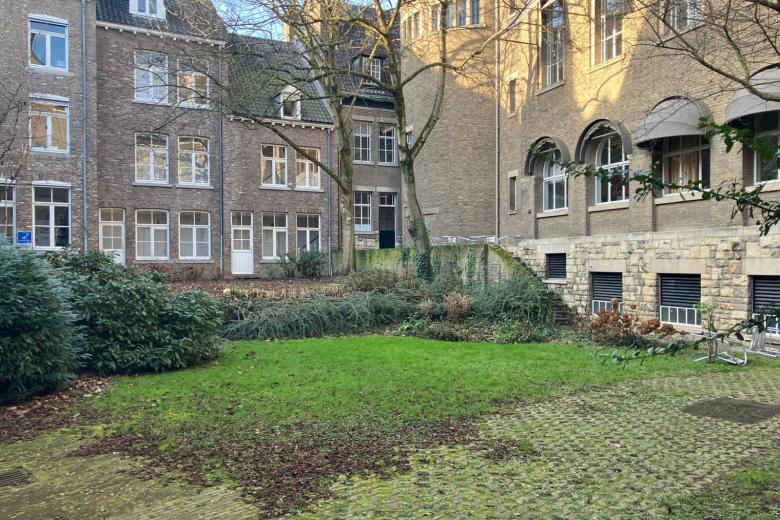Is the Einstein Telescope coming to the Euregion? As yet, nobody knows.
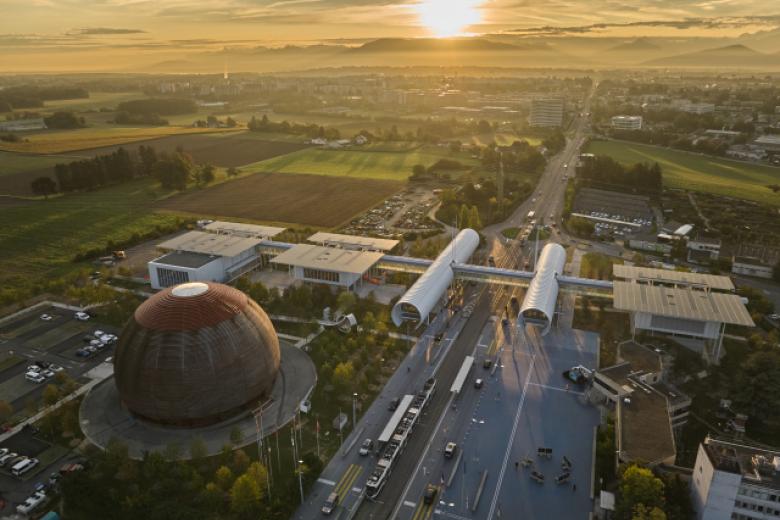
Tips for helping your child choose a study programme
Step 1: Explore interests
Help your child map out their interests by posing questions and recording their answers:
- What subjects excite them most?
- What are their stronger subjects and weaker subjects?
- What subjects do they not want to study?
- Which language would they feel most comfortable learning in?
Make a list of study programmes that match their interests and skills.
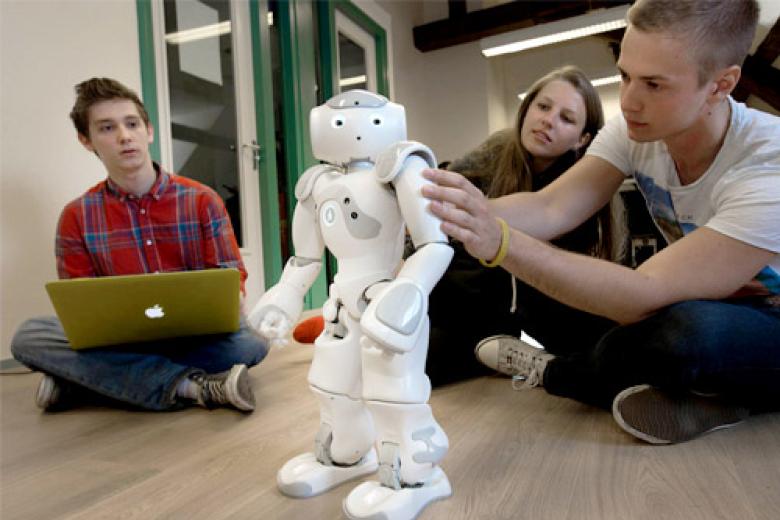
Step 2: Compare options
Together, compare the different programmes in your list. Evaluate each programme based on factors like:
- Course content and subject focus
- Admission requirements
- Teaching styles (e.g., Problem-Based Learning, lectures)
Facilities and support services
- Career paths and job opportunities after graduation
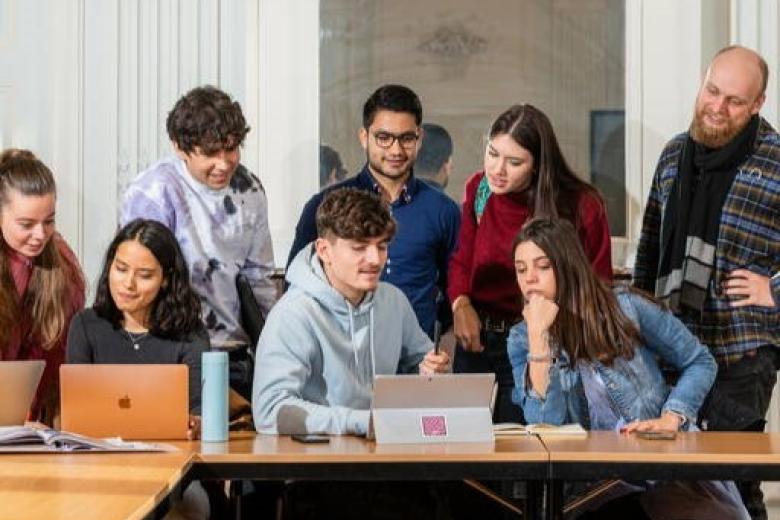
Step 3: Get first-hand experience
Encourage your child to dive deeper by experiencing their top programme choices first-hand:
- Attend Open Days together or have them join an Experience Day to get a feel for the campus environment.
- Join online information events.
- Talk to current students and staff to get personal insights.
- Reflect on whether the programme will keep them motivated and if they’ll feel a sense of belonging.
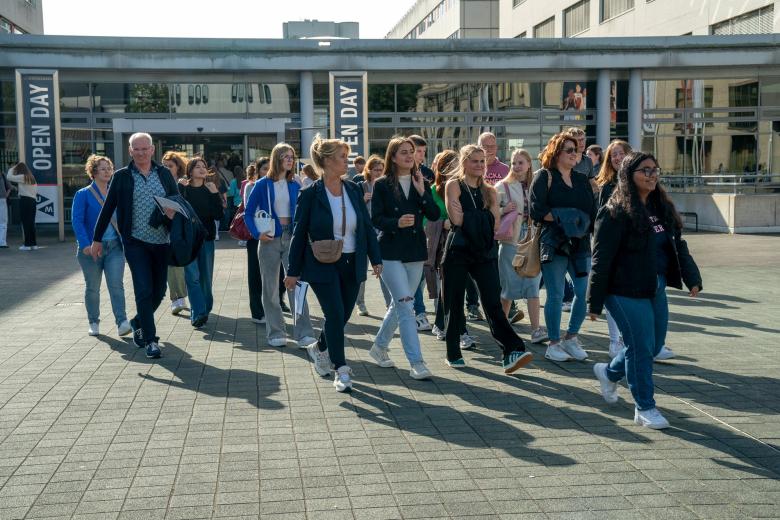
Support and guidance
Making the jump between high school and university can be overwhelming, so your child may need extra emotional support during the decision-making process. It may be helpful to remind them that this is an important step, but not the only step in their journey.
If your child chooses to study at UM, they will have access to a variety of support and guidance services from their first day at university until their graduation.
Parent sessions at our Open Days (in Dutch)
Come to an Open Day together with your child and experience the UM campus and Maastricht together. During the Open Day, many faculties offer sessions for parents.
Register now for the Bachelor's Open Day
More about the Bachelor's Open Day
Online information sessions for parents (in Dutch)
We know you may have different questions regarding your child's choice of university and study programme. That's why we organise online information sessions especially for parents. Get all your questions answered about the jump from high school to university, application and enrolment, housing, and anything else you want to know. Join us on one of the following dates:
- Tuesday 12 November 2024, 20.15 to 21.15 CET
- Tuesday 28 January 2025, 20.15 to 21.15 CET
- Thursday 13 February 2025, 19.00 to 20.00 CET
- Thursday 17 April 2025, 19.00 to 20.00 CET
Worth exploring

What makes learning at UM special?
At UM, students work in small groups using Problem-Based Learning (PBL). This active approach keeps students engaged and helps them apply theoretical knowledge to real-world situations.
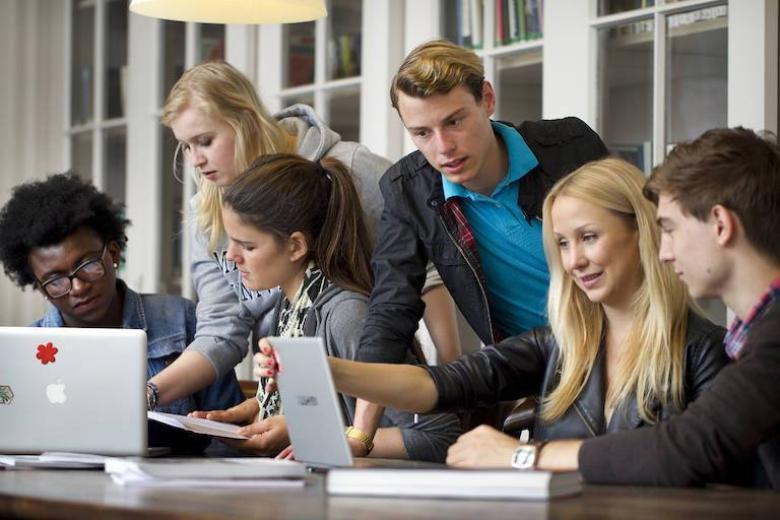
On-campus and online events
Experience UM by joining us on campus or online for an event
Bachelor's Open Day
Online Information Session
Experience Day (select your programme)
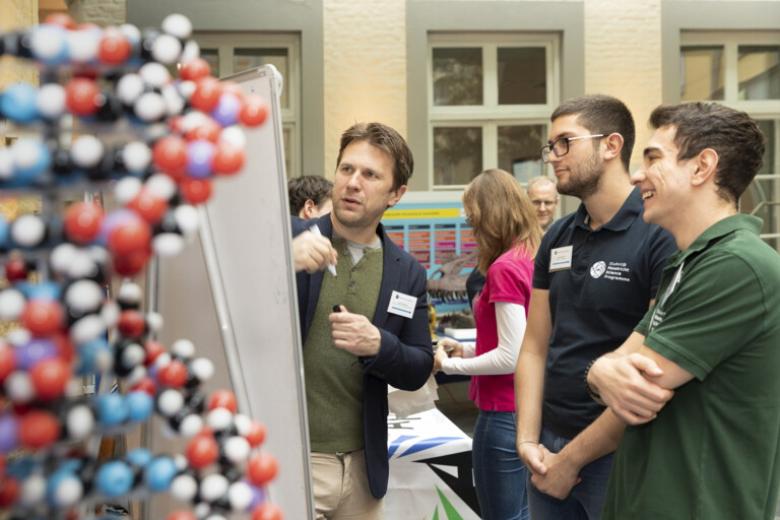
Connect with us
As a parent, please feel free to reach out to us directly. We're happy to answer all your questions, as well as your child's questions, about studying at UM.
join-us@maastrichtuniversity.nl
Facebook
Instagram
Academic profiles
These academic profiles - recognising the differences between faculties - clarify expectations for academic staff and serve as tools for career planning in consultation with their leadership. They are designed not as checklists but as aids for ongoing dialogue on professional growth, helping assessors and staff align on development goals.
Key developments include:
The creation of the UM Career Compass, a guide for development dialogue aligned with the new academic profiles.
- Development and promotion processes, such as annual appraisals, is being aligned with the Recognition & Rewards philosophy.
- The release of the ‘Recognition & Rewards UM Career Development Policy 2023-2028,’ emphasises continuous feedback and development for all employees, with no distinction between academic and support staff.
Download the academic profiles here:
Assistant, associate and full professors (without patient care)
Assistant, associate and full professors (with patient care)
Research Fellows and Postdocs
Teaching Fellows, Academic Teachers, Senior Academic Teachers and Teaching Experts
Download the leaflets with an overview of all profiles here:
All profiles, without patient care
All profiles, with patient care
A new format for development interviews: UM Career Compass
In line with the academic profiles, the UM Career Compass has been developed: a format for the development interviews, replacing the existing toolkit for annual development talks. The compass was created to facilitate and support the dialogue on employee development.
The development talk:
- Focuses on the employee's work, behaviour and performance.
- Is about finding a good balance between personal talents and ambitions and organisational needs and strategies.
Download the UM Career Compass:
- Teachers
- Researchers
- Assistant, Associate and Full Professors
(download the pdf first, then fill in)
Recognition & Rewards UM Career Development Policy 2023-2028
In March 2023, the policy memo ‘Recognition & Rewards UM Career Development Policy 2023-2028’ was released. In line with the Recognition & Rewards philosophy, we focus on continuous development and feedback for all UM employees, with no distinction between academic and support staff. A successful career-development policy asks for customisation. The policy memo sets out the framework and goals, on theme such as stimulating internal mobility, traineeships, revision of the CAO Selection Model, transparency of career paths and investment in professional development activities. It is up to the faculties and service centres to implement the policy according to their own needs and wishes.
Creating a new balance in academic work
Traditionally, not all employee achievements have been recognised and rewarded equally. For academics, their career path was predominantly determined by research performance, in particular quantitative metrics such as research output, citation analyses and acquired grants. The focus on research as an indicator of high performance has often undervalued other crucial academic tasks and increased work pressure and competitiveness. It results in insufficient time and appreciation for development in other areas.
The R&R programme creates a new balance in academic work. UM fully supports this programme, committed to valuing all talents and recognising achievements in education, research, impact, leadership, and patient care.
Watch the Recognition & Rewards video statements about UM's programme, vision and narratives.
Have any questions? Go to the FAQ.
The R&R objectives
Our university’s president Rianne Letschert is co-leading the R&R national programme for the entire university sector together with the rector of the Vrije Universiteit of Amsterdam.
The main objectives of the R&R programme:
- Diversification and vitalisation of career paths: enable more diversity in career paths and profiles for academics.
- Balance between individuals and the collective: assess academics based on both their individual performance and their team performance.
- Focus on quality: provide a better balance between quantitative and qualitative assessment tools.
- Stimulate Open Science: disclose research designs, make data publicly available and encourage academics to put additional effort into making their research outcomes more accessible to society.
- Encourage academic leadership: invest in good leadership at all levels, from young academics to established professors.
Visit the national website for Recognition & Rewards for further information on the national programme and insights into the approaches of other Dutch universities and research centres.
Download the nationwide position paper ‘Room for everyone's talent - towards a new balance in the recognition and rewards of academics'
UM’s vision
UM created a vision document for the R&R programme, linking the nationwide objectives to the values and strategic position of UM. Our vision has a focus on quality over quantity, includes Open Science, updates our PhD track assessment criteria and further defines academic citizenship while balancing the needs of the individual and the organisation.
Our vision for UM’s R&R system encompasses key areas:
- Education
- Research
- Impact
- Leadership
- Patient care (when relevant)
Download the vision document: 'UM's vision on Recognition & Rewards'
UM’s organisational culture and identity
UM has always been ambitious in the areas of innovative small-scale education and interdisciplinary research with demonstrable societal impact. UM’s organisational culture is best described using several key concepts.
- Academic citizenship, the UM community exemplifies the concept of academic citizenship.
- Educational approach, since its inception, UM has been shaped by its focus on innovative, student-centred education.
- Interdisciplinary research, research at UM is mission-driven, and its integration of multiple disciplines helps to contribute to solving regional and international challenges.
- Societal impact, from the founding of the university in 1976, UM has been a vehicle for the economic and intellectual development of the Limburg region and beyond.
- MUMC+ partnership, our strong partnership with the MUMC+ academic hospital is one of the pillars of our embedment in the local community.
- Diversity and inclusivity, UM strives to go well beyond quotas and compliance; we are determined to foster an environment in which everyone is and feels welcome.
- Leadership, well-developed leadership is a precondition to success and therefore considered a key area in itself.
Applying UM’s core values: expectations and examples for staff
Our core values derive directly from our mission and the vision of the R&R programme.
For academic staff, examples are included in the R&R academic profiles. View the different academic profiles on the UM Career Policy & Compass page.
Examples of evidence and behaviours other university staff could display when contributing to the UM core values include:
Academic citizenship
- Contribute to the wider civic mission of the university.
- Demonstrate efforts in making the university an inclusive environment valuing diversity.
- Set up programmes to involve the community in the university.
- Participate in (internal or external) committees or taskforces; organise team events etc.
Personal/professional leadership
- Demonstrate self-reflection and personal development (feedback results).
- Regularly request feedback from students, colleagues and others.
- Effective communication (online and offline).
- Identify the necessary tasks and prioritise them to develop an individual schedule and autonomously perform the work, ensuring that the requirements are met.
- Improvement of processes and procedures.
- Take the lead among peers in a project.
- Provide mentorship to others.
- Provide constructive feedback to help others learn.
- Organise feedback sessions.
- Take part in leadership training and put skills learned to use.
- Demonstrate efforts in making the university an inclusive environment valuing diversity.
- Participate in (internal or external) committees, think tanks, coaching activities or engaging in other forms of talent development etc.
Team performance
- Work confidently within a group with each doing their part in the service of the whole.
- Co-creation with others.
- Collaborate with others outside of the standard circle (outside of your team, department, or faculty/service centre) etc.
Impact & Open Science
- Make your work relevant to society.
- Produce, store and (re)use scientific data based on FAIR (Findable, Accessible, Interoperable, and Reusable) principles, making data as open as possible, and as closed as necessary.
- Use open-source software.
- Use Open Access resources.
- Set up and participate in Open Science events.
- Educate about the application of FAIR principles.
- Educate about the importance of Open Science etc.
Narratives for four key areas
Four committees with representatives from each faculty for the key areas of education, research, impact and leadership have developed narratives about how to recognise and reward performance within their domain. The narratives acted as input to steer the discussion on how to move forward.
At the central level, the R&R programme is managed by Ann Vanderhaeghe and Bruna Calado. They collaborate closely with the faculty liaisons from each faculty to implement the R&R programme effectively. The faculty liaisons are responsible for adapting the central implementation format into a specific implementation plan for their faculties and monitoring its progress. Additionally, they ensure effective communication and raise awareness about the activities and key information related to the R&R programme.
Download the narratives here:
Education Narrative
Research Narrative
Impact Narrative
Leadership Narrative
Read more
NRIN on tour 9 April - Join us!
NRIN, the Netherlands Research Integrity Network organises a presentation and panel discussion on Recognition & Rewards, as well as the latest developments and opportunities presented by the Dutch CoARA chapter.
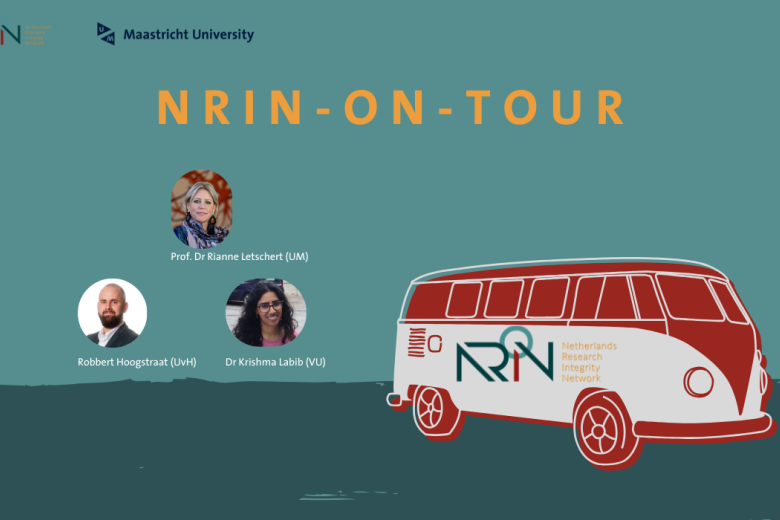
Frequently asked questions
Do you have questions about R&R? This FAQ offers an overview of frequently asked questions and their answers. Read more about career opportunities, sustainable employability, education, research, leadership and implementation within UM.

UM-CoARA action plan for reforming research assessment
In its action plan, UM pledges commitments regarding research careers, research evaluations, responsible quantitative indicators and rankings and benchmarking.

Recognition & Rewards Culture Barometer findings
In January 2024, the Recognition & Rewards (R&R) national programme conducted a survey among scientists in 26 out of the 27 participating institutions. The findings indicate broad support for the ambitions of the R&R programme and a shifting community mindset. However, this change is not yet noticeable everywhere.
Open Science, open mind
Promoting ‘Open Science’ is one of the priorities of R&R. A new approach in which universities and research institutes worldwide work together to make science "as open as possible, as closed as necessary".
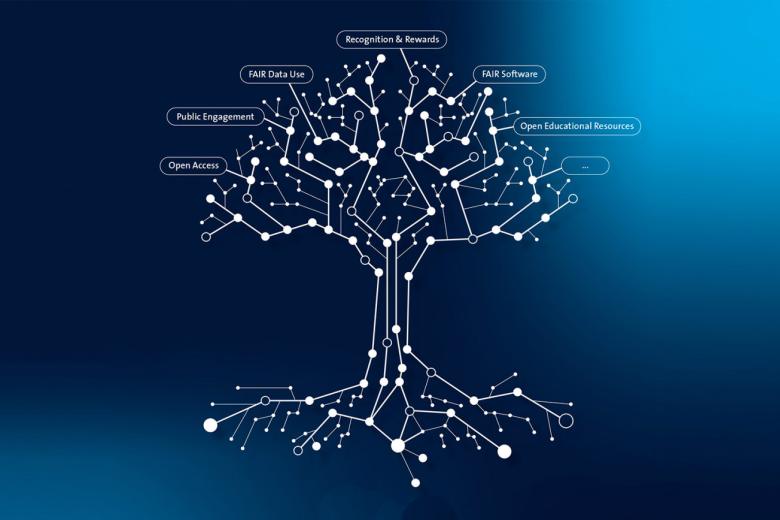
The team developing UM’s R&R system
At UM, the institutional R&R committee consists of the president, the rector, the faculty deans (and/or portfolio holders R&R), the HR director and the R&R programme manager who together lead the programme’s development. The institutional committee facilitates the discussion with the academic community and ensures coherence between the internal discussions and the subsequent proposals. Realising and safeguarding alignment with national developments is also the committee’s responsibility.
Besides the UM-wide commission, other organisations within UM are actively involved in the process of Recognition & Rewards. The Maastricht Young Academy and Female Empowerment UM (FEM) delegate members, and employees from the University Library are involved. Moreover, occasionally members of the Local Consultative Body, the University Council, the Central PhD Candidates Platform (CPCP), and the PhD Platform contribute.
The involvement of the entire UM community in the development of the programme is key to creating a sustainable culture change. Therefore, the commission always remains open to input.
Protein-rich diet no improvement for intensive care patients
- Featured
- Researchers
- UM news
The study was conducted by physician-researcher Julia Bels and led by intensivist Marcel van de Poll both NUTRIM /MUMC
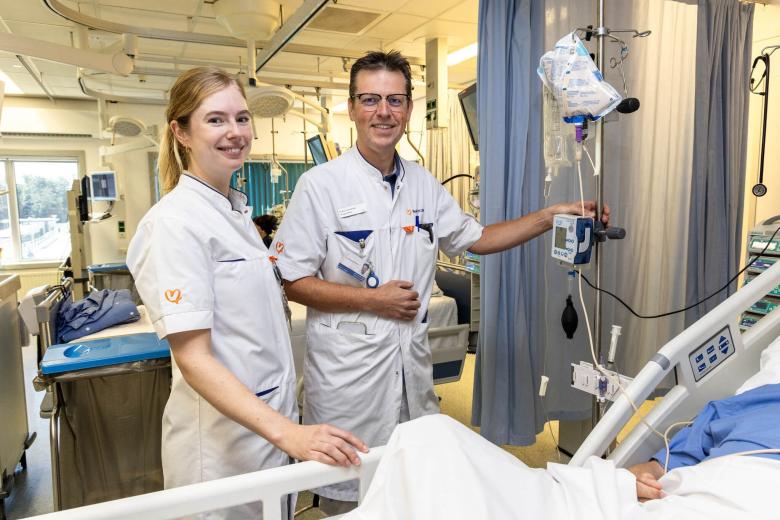
Student membership
Bachelor Student
€ 25,- per year
- Join our unique network and meet all Friends at a yearly get-together
- €7,50 LAW-merchandise discount voucher (one-time use)
- Law Coffee To Go cup worth €9,95 (one-time)
- Support study facilities, research and community development
Master student
€ 35,- per year
- Join our unique network and meet all Friends at a yearly get-together
- €10,- LAW-merchandise discount voucher (one-time use)
- € 15,- discount voucher for a professional LinkedIn photo by Foto Rembrandt (one-time use).
- Support study facilities, research and community development
Alumni membership
Bachelor Alumni *
€ 35,- per year
- Join our unique network and meet all Friends at a yearly get-together
- Support to share internship and job opportunities and to become a guest lecturer or mentor
- €10,- LAW-merchandise discount voucher (one-time)
- Professional LinkedIn picture by Foto Rembrandt worth €15,- (one-time)
- Support study facilities, research and community development
* The Bachelor Alumni membership is aimed at students who leave our university after their Bachelor’s degree. After two years the membership will be automatically converted to a regular Alumni membership.
Alumni
€ 50,- per year
- Join our unique network and meet all Friends at a yearly get-together
- Support to share internship and job opportunities and to become a guest lecturer or mentor
- € 10,- LAW-merchandise discount voucher (one-time)
- Professional LinkedIn picture by Foto Rembrandt worth € 15,- (one-time)
- 20% discount on your first LAW.next course
- Support study facilities, research and community development
Staff members & Former staff membership
Staff members
€ 50,- per year
- Join our unique network and meet all Friends at a yearly get-together
- € 10,- LAW-merchandise discount voucher (one-time)
- Professional LinkedIn picture by Foto Rembrandt worth € 15,- (one-time)
- Support study facilities, research and community development
Former staff members
€ 50,- per year
- Join our unique network and meet all Friends at a yearly get-together
- €10,- LAW-merchandise discount voucher (one-time)
- Professional LinkedIn picture by Foto Rembrandt worth €15,- (one-time)
- 20% discount on your first LAW.next course (former staff members)
- Support study facilities, research and community development
Project | Garden of Justice
We are proud to share that our current project, made possible thanks to your support as a Friend of the Faculty of Law, involves the transformation of the garden, located among the former houses (Bouillonstraat 1-3). This space has recently been renamed the "Garden of Justice" and is being developed into a tranquil and sustainable environment where both staff and students can relax.
Our vision for the garden goes beyond mere relaxation: we aim to create a biodiverse space where staff and students have the opportunity to grow their own plants, herbs, and flowers. This will not only enhance biodiversity but also strengthen the sense of community within our faculty.
With your support as a Friend of the Faculty of Law, we are bringing this vision to life. Together, we are creating a unique space where nature, justice, and community come together.
Garden of Justice: before the renovation
The transformation of our courtyard garden
